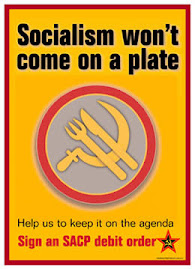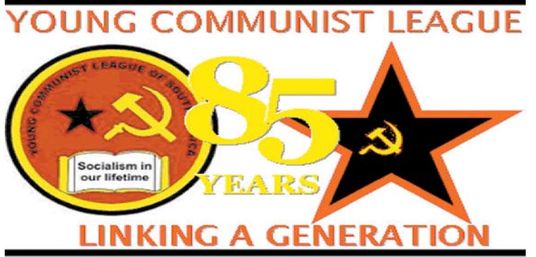The articles by Richard Pithouse and Dr Xolela Mangcu which appeared on Business Day of 23 July 2009 are indeed thought provoking and fruitful for those who are interested in the resolution of the recent community protests and any other protests.
The Richard article is sparking a debate about the nature and form of our political system. Unlike those that don’t know him, I am grateful that I have an opportunity to be lectured political philosophy by him at Rhodes University. I thought that I would not do justice to his article if I just responded without directly getting clarity on some of the things he is talking about in the article, so I have just approached him and he has tried (though not satisfactory) to clarify me on some of the issues that comes out upon engaging with the article.
Firstly I totally agree with him and Xolela Mangcu when they argue that viewing the protests as some form of revolt against “poor service delivery” and if “service delivery” is enhanced they will eventually stop is rather simplistic and ignores their underlying cause. As Richard stress it is indeed true that, “ These protests are much more fruitfully understood as a demand for a more inclusive mode of development, in the double sense of including poor people in cities and of including all poor people in developmental project.” What is that mode of development and who leads it, are questions we want to know.
Richard does not provide any workable solution to the problem that he has just pointed out. When I approached him he said the reason why he did not do that is because of editorial economy, in other words newspaper space. I then asked him about what he would have said if he had more space. He said he would stress for democratisation of local politics, where the would be strong community movements that would make sure that the councillor is hold into account and that all the needs and demands of the people are not only listened to but are taken seriously.
He also said democratisation of political party politics should also be central and that things should be done from a bottom-up approach not a top-down one. I agree with him on this, it is indeed true that a municipal ward of 4, 000 people cannot be led by 400 paid up members of a certain political party, and the people are only there to vote during elections. But how to do this is what Richard does not provide.
The reality on the ground (perhaps for me) is that there are few popular community or social movements in our communities, which are outside the liberation movement and do not support or are aligned to a particular political party. Even when they exist, not even half of the communities in which they are located in participate in them. What we need from intellectuals such as Richard is how to mobilise our communities, not to launch a movement against political parties but to strengthen, advance and deepen democratic participation within our political parties, more especially the liberation movement.
Xolela Mangcu proposes that we use the Black Consciousness Movements “strategy and philosophy of community based self-reliant development”. What is of importance in Mangcu’s article is his stress that we need to have a community mobilisation strategy that accommodates both the “width” and “ depth” approaches to housing policy.
At least Mangcu does not make the mistake made by Richard, but he also does not explain what he mean by a community mobilisation strategy, instead he challenges us to look at examples around the world.
I am not basically suggesting that these intellectuals should come up with technocratic ideals or bullet points on what should be done to address the situation, but I am stressing that they ignored the economic system we live under.
The two articles on the main, fail to acknowledge that capitalism is the real enemy of the people here and that the people are locked into poverty because of the structural discrepancies that it always reproduce. For as long as capitalism is the dominating mode of production and distribution there will always be public protests, in which the state ( regardless of which political party is in government) will always be on the wrong side, ready to repress with police and even reinforce with the army. This is basically why in Marxists circles the capitalist state is best understood as “a product and manifestation of the irreconcilability of class antagonisms,” and even further as “an organ of class rule.”
Tuesday, July 28, 2009
Subscribe to:
Posts (Atom)


